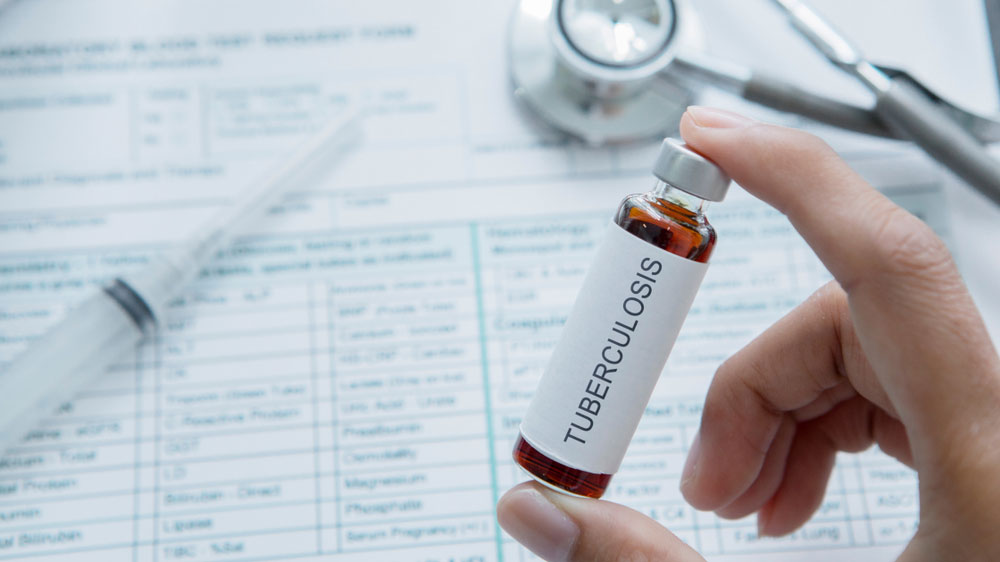A 12-year-old girl with tuberculosis in a government hospital in Mumbai has received for over a month daily injections of amikacin, a drug that doctors say she should not receive under the current TB treatment guidelines.
Doctors have diagnosed her as an extensive drug resistant (XDR)-TB patient, eligible to receive an oral patented drug named delamanid produced by a Japanese drugmaker Otsuka and whose supply in India is controlled by the Union health ministry.
Guidelines adopted by India’s National TB Elimination Programme (NTEP) in 2018, in line with World Health Organisation recommendations, prescribe delamanid as a potential life-saving alternative oral drug to pre-XDR-TB and XDR-TB patients to replace injectable drugs like amikacin.
XDR-TB is a type of multi-drug resistant (MDR)-TB in which the germs are resistant to at least two key first-line drugs, one an injected drug, and one drug from the family of fluoroquinolones. And pre-XDR-TB is marked by resistance to first-line drugs and at least one fluoroquinolone.
Studies from multiple countries have suggested that anti-TB regimens that include delamanid and another oral drug called bedaquiline can increase treatment success rates in XDR-TB patients from below 40 per cent to over 72 per cent.
When tests revealed the Mumbai girl had XDR-TB, her doctors first started a treatment regimen that included kanamycin — another injected drug — but switched to amikacin after she developed hearing loss, a known side effect of kanamycin. Amikacin too comes with a high risk of hearing loss.
The girl is among thousands of pre-XDR- or XDR-TB patients across the country who have been exposed to the risks of low-efficacy regimens because the NTEP has been unable to supply sufficient doses of delamanid, doctors and patients rights’ groups have said.
“Patients have to suffer consequences of obsolete injected drugs because the government is not making available the new medicine,” said Ganesh Acharya, a Mumbai-based TB survivor who is among activists campaigning for improved access to delamanid.
Leena Menghaney, a New Delhi-based lawyer who also works on access to treatment issues, said denying delamanid to pre-XDR- and XDR-TB patients “reduces their chance of treatment success and also puts those around them at risk of becoming infected with drug-resistant TB”.
Senior NTEP officials have not responded to queries from this newspaper about delamanid shortages reported by patient rights groups, current stocks of the drug, and how many patients have received delamanid across the country so far.
But a March 2021 report from the NTEP said 22,729 patients had received bedaquiline regimens and 652 patients had received delamanid regimens up to 2020. An NTEP official who requested anonymity told The Telegraph that those numbers need to be updated.
Health activists, however, say those published numbers themselves expose the scale of unmet demand.
A nationwide survey in 2018 had estimated the number of MDR-TB patients at 147,000, with about 22 per cent resistant to fluoroquinolones. Under current treatment guidelines, Menghaney said, those counts would translate into nearly 30,000 patients needing both bedaquiline and delamanid.
India had estimated an incidence of 124,000 MDR-TB patients in 2019 and, applying the 22 per cent resistance to fluoroquinolones to that estimate would mean over 20,000 patients would be eligible for bedaquiline and delamanid each year.
Patient rights groups have attributed the delamanid shortages to the Centre’s refusal to use provisions for compulsory licensing in Indian patent laws to facilitate domestic production of inexpensive generic versions of the drug and delays by the NTEP in procuring the drug from its sole supplier.
Earlier this year, the Union commerce ministry’s department for promotion of industry and internal trade, responding to a petition by patient rights advocates in Bombay High Court, rejected their demand for compulsory licensing saying that the Centre had enough stocks for the next nine months.
“This was tantamount to misleading the court,” said Menghaney. “If the health ministry has sufficient stocks for nine months, why are so many patients not getting delamanid now?”
Interviews with sections of district and state NTEP officers suggest that access to delamanid remains patchy with some conceding shortages, others asserting there are no shortages, and some saying they do not need delamanid as they make do with bedaquiline.
Rameshchandra Reddy, an NTEP officer in Karnataka, told this newspaper that eight patients in the state are currently on delamanid but around 25 patients need the drug. “We have already made an indent (a requisition) and are waiting,” he said.










